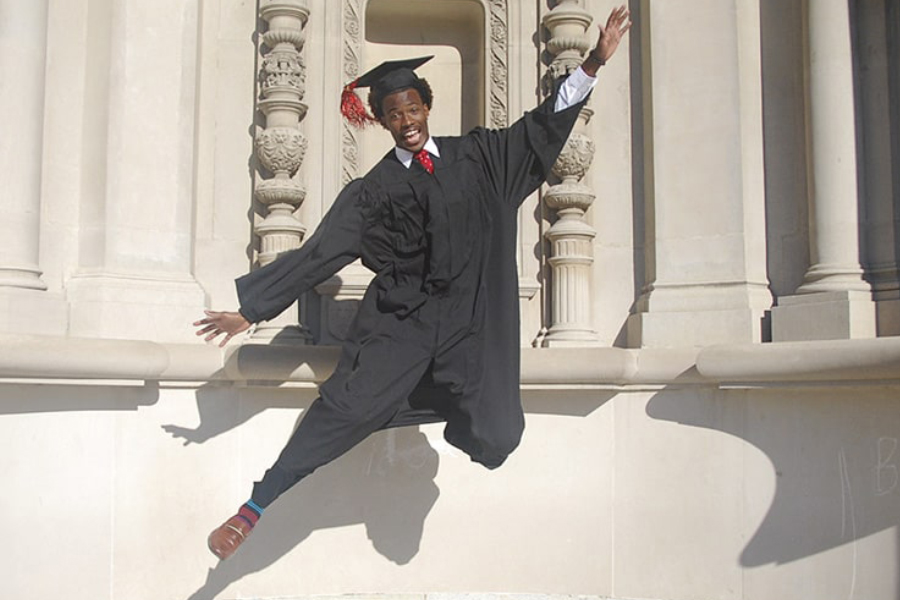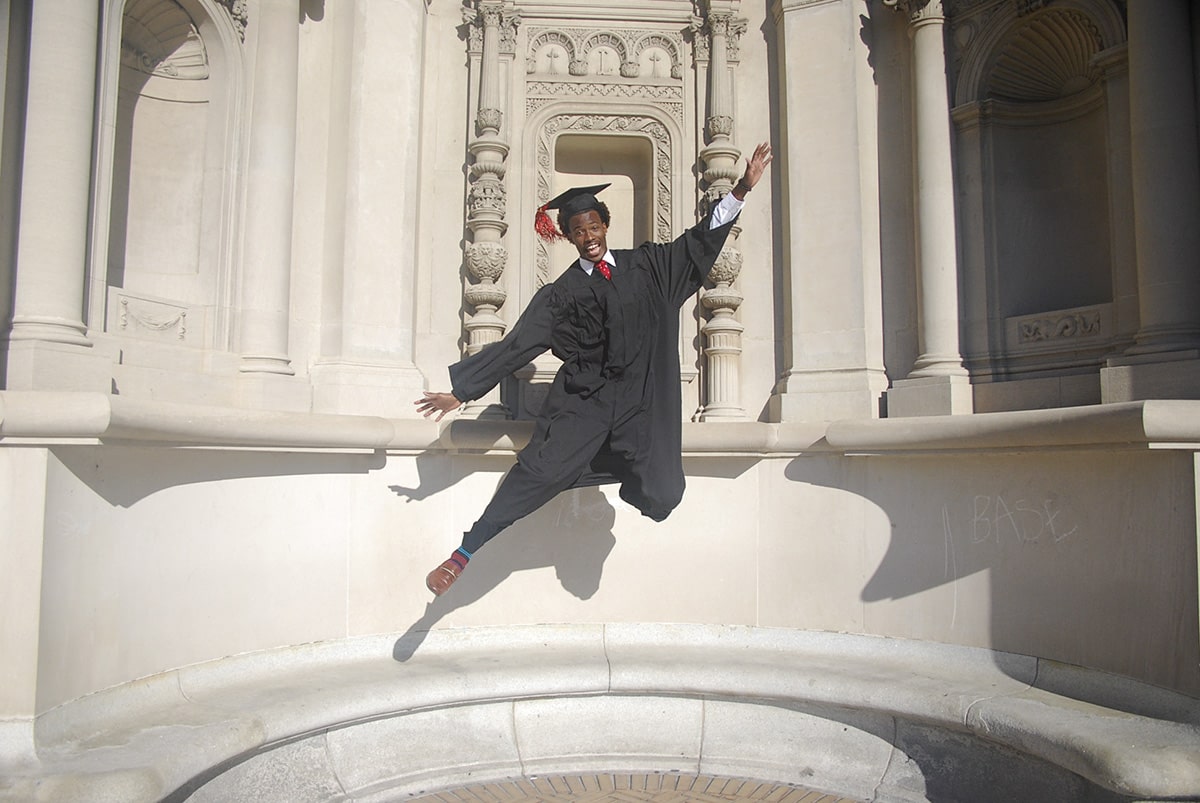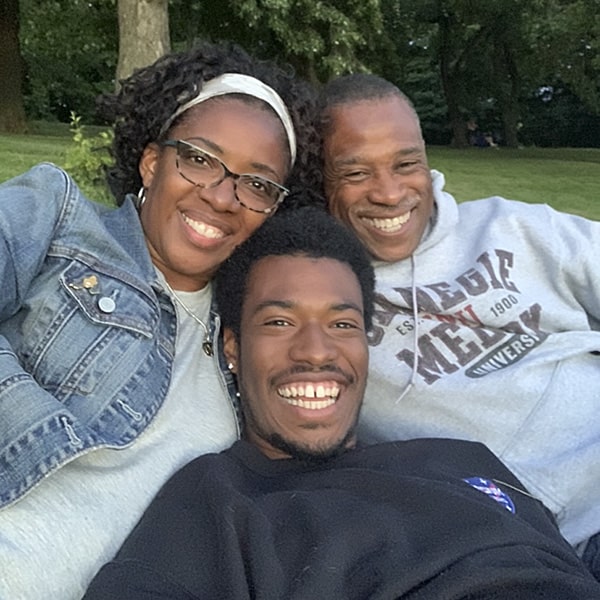
Senior Rallies To Ace Comeback
If 2020 proved anything, what life serves up comes downcourt fast. Since he was 8, Joshua Pinckney excelled at returning what came his way — both on the tennis court and in the classroom. Last year, though, the Carnegie Mellon University graduating senior encountered a defining challenge that changed his perspective of the world.
This new way of seeing started with a mysterious pain ... in his eye.

Last summer, singles tennis was arguably the competitive sport least-affected by the coronavirus outbreak. Players remain separated, outdoors, on their own side of the court. COVID-19 wasn't the cause of the vision troubles that were plaguing Pinckney as he practiced. His inability to connect his racket to the ball led him to believe something was truly wrong.
 A routine eye-exam showed the troubling indication of a larger problem, and Pinckney found a normal day morph into an emergency room visit, an MRI and a life-altering diagnosis of multiple sclerosis. His parents, Claristine and Eric Pinckney Sr. (pictured at right), came to Pittsburgh immediately to be with him in the hospital. And in this trying moment, Pinckney said he felt a surprising feeling.
A routine eye-exam showed the troubling indication of a larger problem, and Pinckney found a normal day morph into an emergency room visit, an MRI and a life-altering diagnosis of multiple sclerosis. His parents, Claristine and Eric Pinckney Sr. (pictured at right), came to Pittsburgh immediately to be with him in the hospital. And in this trying moment, Pinckney said he felt a surprising feeling.
Gratitude.
"We take life for granted, and this made me grateful for every day that I'm alive," Pinckney said. "We always go through life wanting more, and not appreciating what we have. My grandparents are a big part of my life. At my age, they were not afforded opportunities like these. It's because I'm grateful to be educated at a place like CMU that I'm so driven to make an impact here and leave a piece of myself and of my ancestors for those who follow.""Stress is the No. 1 trigger for MS, so I had to really reset my boundaries and limits — stop biting off more than I could chew," Pinckney said. "I had to realize that I wasn't a failure if I didn't contribute to all these different activities and student life. I was actually reinvesting in myself, to do those things more sustainably over time."
As a Plaidvocate, and in his roles as RA and CA, Pinckney has tried to spread important messages to his peers. He stressed that as society continues to diversify, humanity needs to break down the barriers of assumption and judgment.
"We have the power to change things, and even if you don't do it on a broad scale, then it's super important to do it for yourself." — Joshua Pinckney
"I talk with people about making change, not just in their own life, but in their student organizations and peer groups," Pinckney said. "We have to own that we have the power to change things, and even if you don't do it on a broad scale, then it's super important to do it for yourself."
But that work, too, needed to be put on hold to address his own well-being.
Michael Belmonte has been head men's tennis coach at CMU since 2017 and has known Pinckney through his undergraduate career.
Before his diagnosis, Pinckney said he would have hoped others saw him as an empathetic person. Now, he said he's humbled by what he understands empathy to truly be.